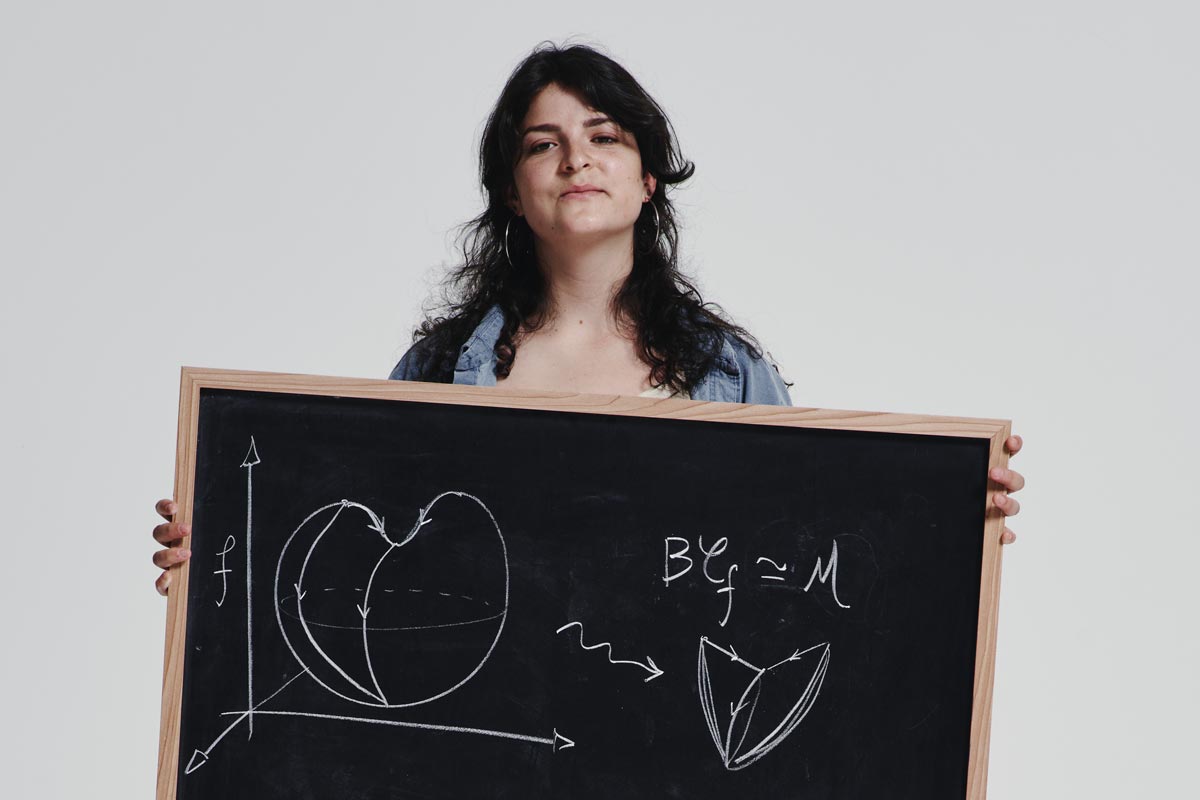The Acrobat of Morse Theory
Meet math major Maxine Elena Calle ’20.
Major: Mathematics
Hometown: San Diego, California
Thesis adviser: Prof. Kyle Ormsby
Thesis: Morse Theory and Flow Categories
What it’s about: Morse theory seeks to understand ambient spaces by studying the differentiable functions on them. Imagine flooding a landscape with water, and watching the flow of that water over the surface. We can record that information and use various mathematical tools to understand when spaces are topologically “the same” even if they look different to the naked eye. One method of storing this sort of information is called the flow category, and my thesis focuses on a particular result that relates the flow category of a Morse function to the original underlying space.
What it’s really about: How can we think of two spaces as “the same” when we have no fixed notion of shape?
In high school: I wore a lot of eyeliner and dyed my hair all the time, but was a goody-two-shoes that didn’t like breaking the rules.
Influential professors: I have learned to think of mathematics as a language, as a story that we tell each other. Prof. Irena Swanson’s Introduction to Analysis class showed me a way of doing mathematics that was unlike anything I’d ever seen before. She was the first professor who encouraged me to be a math major. Prof. Jerry Shurman’s Vector Calculus course helped me embrace mathematical learning and problem-solving as a collaborative activity.
Influential book: Category Theory in Context by Emily Riehl.
Concept that blew my mind: There are always two antipodal points on the Earth's equator with the same temperature.
Cool stuff: I published original mathematics research, tutored in the math help center, co-organized STEMGeMs (Reed’s student group for gender minorities in STEM), and taught in an aerial acrobatics studio.
Awards: Outstanding poster award for original mathematical research presentation.
Challenge I faced: Mathematics should be accessible to more than the “initiated few.” People from disadvantaged communities face systemic hindrances that often are not the result of overt discouragement, but rather a lack of active support and empowerment, due largely to mass underrepresentation.
How Reed changed me: It’s been lovely to be around people as interested in learning as I am, both in and out of the classroom. Reed has inspired me to try to live with radical kindness.
Financial aid: I would not have been able to attend Reed without help from the generous scholarships I have received, including the Alvin and Alveda Pearson Memorial Scholarship and the James B. Small Scholarship. Denise VanLeuven and the music department provided a scholarship for my piano lessons at Reed, enabling me to grow as a musician and as a more well-rounded member of the community.
What’s next: I received the NSF Graduate Research Fellowship Program award and will enter a PhD program at the University of Pennsylvania.
